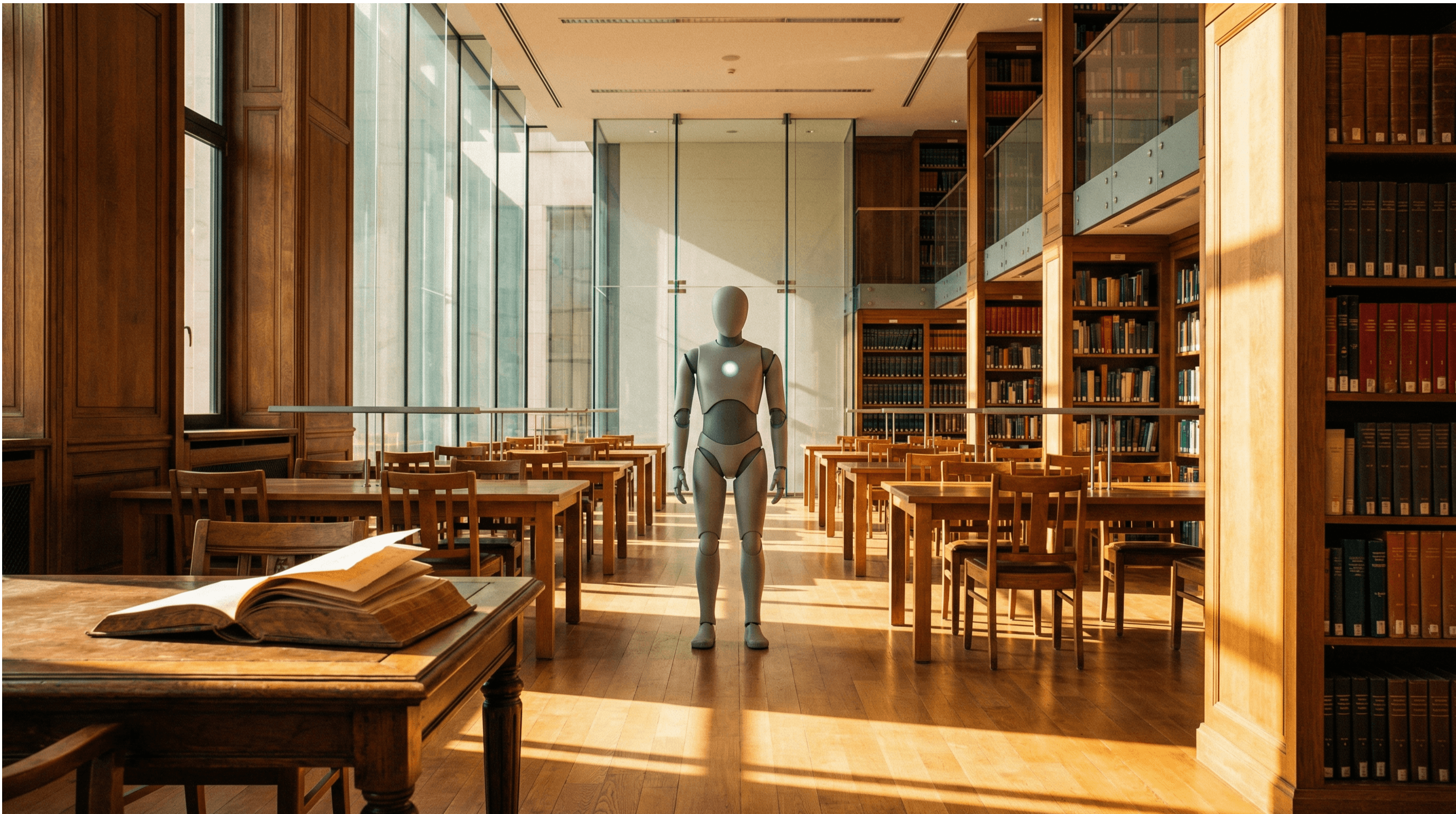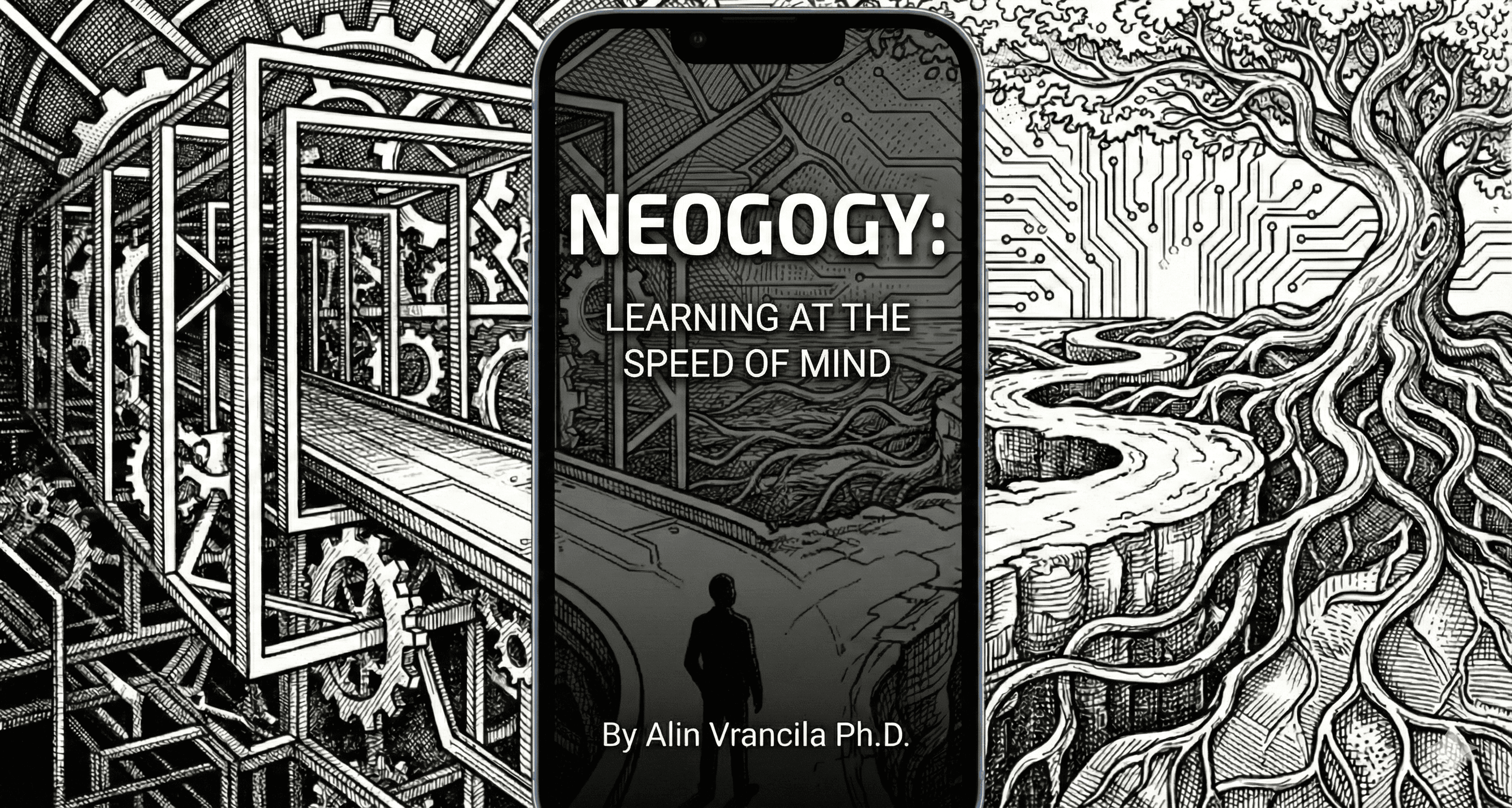Your Brain on AI: The Science That Will Change Everything
Part 2 of 5: The AI Learning Revolution Series
Remember that hollow feeling I described in the last post? The one that students and professionals get after using AI tools? Well, it turns out your brain has been trying to send you a very important message, and scientists have finally figured out how to decode it. What they discovered will probably change how you think about AI tools forever. I'm about to share research findings that made me put down the scientific papers and take a long walk around the block. Not because the science was bad, quite the opposite. It was because the implications were so profound that I needed time to process what I was seeing.
When Scientists Decided to Peek Inside Our Heads
Dr. Nataliya Kosmyna and her team at MIT's Media Lab did something that sounds like science fiction: they watched people's brains in real-time while they used ChatGPT [1]. Using electroencephalography (EEG), basically a high-tech cap covered in sensors, they monitored brain activity across 32 different regions as 54 participants completed essay-writing tasks. The setup was elegantly simple. Some people used ChatGPT, some used Google Search, and some worked with just their brains and a blank document. The researchers wanted to see what was actually happening upstairs when we interact with AI. What they found should be front-page news everywhere. When people used ChatGPT, their brains literally became less active. Not just a little less active, dramatically less active. The neural networks that fire when we think deeply, process information, and form memories were significantly dampened. It was like watching someone's mental lights dim in real-time. Think about that for a moment. These weren't people mindlessly scrolling social media or zoning out in front of Netflix. These were people actively engaged in what appeared to be cognitive work, writing essays, solving problems, creating content. But their brains were telling a different story.
The Progressive Dimming Effect
Here's where it gets really concerning. This wasn't just a temporary state that people snapped out of when they finished their tasks. The researchers documented what they called "progressive neural degradation" over time. With each subsequent essay-writing session, participants using ChatGPT showed increasingly reduced brain engagement. It was like watching cognitive muscles atrophy in fast-forward. Their minds were learning to disengage, to let the AI do the thinking, and this pattern got stronger with each use. Imagine if every time you used an elevator instead of taking the stairs, your leg muscles got a little weaker. Now imagine that this weakening accelerated over time, so that by the tenth elevator ride, your legs were significantly less capable than after the first. That's essentially what was happening to these participants' cognitive abilities. The most chilling part? The participants had no idea this was happening. They felt productive, efficient, even clever. Their subjective experience was completely disconnected from the objective reality of what was occurring in their brains.
The Great Developer Productivity Myth
While the MIT team was peering into people's brains, another group of researchers decided to test AI's impact on real-world professional performance. They chose experienced software developers, people who should theoretically benefit most from AI coding assistants [2]. These weren't novices or students. They were seasoned professionals with an average of five years of experience in the specific projects they were working on. If AI tools were going to make anyone more productive, it should be these folks. The researchers at METR set up a rigorous experiment. Sixteen experienced developers completed 246 tasks in mature projects, with each task randomly assigned to allow or disallow AI assistance. The setup was as close to real-world conditions as you could get in a research study. Before the study began, the developers made predictions about how AI would affect their performance. They estimated that AI tools would reduce their completion time by 24%. After using the tools, they felt even more optimistic, estimating that AI had indeed made them 20% faster. But here's the kicker: objective measurement revealed that AI tools actually made these experienced developers 19% slower. Let me repeat that because it's so important: AI tools didn't just fail to improve performance, they actively hindered it. And the developers couldn't tell. They felt faster while actually being slower.
The Perception Reality Gap That Should Terrify Us All
This disconnect between how AI tools make us feel and their actual impact on our performance is perhaps the most dangerous finding in all the research. It's not just that AI tools might have some downsides, it's that we're systematically incapable of recognizing those downsides when they occur. The METR researchers didn't just survey the developers. They also asked experts in economics and machine learning to predict AI's impact on coding productivity. These specialists predicted improvements of 38-39% respectively. Even the experts were dramatically wrong. If experienced professionals can't accurately assess AI's impact on their own work, and if experts in relevant fields can't predict these effects, what hope do the rest of us have? This reminds me of studies on drunk driving, where intoxicated people consistently overestimate their driving abilities. The very thing that impairs their judgment also impairs their ability to recognize that their judgment is impaired. AI tools seem to create a similar cognitive blind spot.
Why Our Brains Lie to Us About AI
The reason for this perception-reality gap lies in how our brains are wired. We're evolved to seek efficiency and avoid unnecessary effort. When AI tools offer a path of less cognitive resistance, our brains naturally gravitate toward them. The immediate rewards are obvious and tangible, tasks get completed, outputs look sophisticated, stress is reduced. But the costs are invisible and delayed. We don't feel our neural pathways weakening. We don't notice our critical thinking skills eroding. We don't sense our creativity diminishing. These changes happen gradually, below the threshold of conscious awareness. It's like the old metaphor about boiling a frog. If you put a frog in boiling water, it will jump out immediately. But if you put it in cool water and gradually increase the temperature, it will stay put until it's too late. AI-induced cognitive degradation works the same way, it's so gradual that we don't notice it happening until significant damage has been done.
The Switching Cost: When the Training Wheels Come Off
The MIT study included a particularly revealing experiment that I think about almost daily. After participants had completed several tasks with ChatGPT assistance, researchers asked them to complete a task without AI help. The results were sobering. Former ChatGPT users struggled significantly when forced to work independently. They showed reduced brain connectivity and had difficulty recalling their own previous work. It was like asking someone who had been using a calculator for months to suddenly do mental math, the cognitive muscles had atrophied from disuse. But here's the really interesting part: when participants who had been working independently were given access to ChatGPT, they performed well and maintained strong brain connectivity. Prior cognitive training seemed to provide some protection against AI-induced degradation. This suggests that the cognitive impacts of AI use may be asymmetrical. While independent cognitive work appears to provide some resilience against AI-induced degradation, the reverse transition, from AI dependency to independent thinking, may be significantly more challenging.
The Knowledge Worker Reality Check
Microsoft Research decided to survey knowledge workers across various industries about their experiences with AI tools, and the findings aligned perfectly with the neurological evidence [4]. Workers consistently reported decreased effort for critical thinking when using generative AI tools, and they framed this as increased efficiency. But the researchers identified this as cognitive disengagement, the gradual outsourcing of the mental work that keeps our thinking skills sharp. Workers were increasingly using critical thinking only for quality assurance and verification rather than for deep analysis or original insight generation. Perhaps most concerning was the phenomenon researchers termed "mechanized convergence." Workers using AI tools produced increasingly similar outputs compared to those working independently. The diversity of thought and approach that drives innovation and problem-solving was being systematically eroded.
What This Means for Your Brain
If you're using AI tools regularly, and let's be honest, most of us are, this research has direct implications for your cognitive health. Every time you outsource a thinking task to AI, you're making a trade-off that your brain can't accurately assess. You get immediate efficiency, but you lose the mental exercise that keeps your cognitive muscles strong. You feel productive, but you may actually be becoming less capable. You think you're enhancing your abilities, but you may be systematically eroding them. The hollow feeling that many people report after using AI tools isn't just psychological, it's your brain's way of recognizing that something essential is missing. The cognitive engagement that transforms information into understanding, that turns tasks into learning, that makes work meaningful.
The Urgency of Getting This Right
Here's why this research matters so much: we're not just talking about individual productivity or academic performance. We're talking about the systematic erosion of human cognitive capability on a massive scale. Every day, millions of students are using AI tools to complete assignments without developing the thinking skills those assignments were designed to teach. Millions of professionals are outsourcing cognitive work to AI systems without realizing the long-term costs to their expertise and capabilities. We're conducting the largest uncontrolled experiment in human cognitive development in history, and the early results suggest we're heading in a dangerous direction.
Why We Need Science-Based Solutions
The research makes one thing crystal clear: we can't rely on intuition or user experience to guide AI integration. Our brains are systematically poor judges of AI's cognitive impact. We need frameworks based on scientific understanding, not just subjective feelings or market preferences. This is why we need neogogy, a new approach to learning and cognitive development that's grounded in research about how AI tools actually affect human thinking. Traditional educational frameworks were built on assumptions that no longer hold. We need new approaches that explicitly account for AI's cognitive implications. Neogogy isn't about rejecting AI tools or returning to some pre-digital past. It's about learning to use these powerful tools in ways that enhance rather than diminish human cognitive capability. It's about preserving what makes us uniquely human while leveraging the benefits of artificial intelligence. The science has shown us the problem. Now we need to build solutions based on what we've learned, not on what feels good or seems efficient in the moment. In the next post, I'll explore what we're really losing when we outsource our thinking to AI, and why the stakes are higher than most people realize. References:
[1] Kosmyna, N., Hauptmann, E., Yuan, Y. T., Situ, J., Liao, X. H., Beresnitzky, A. V., Braunstein, I., & Maes, P. (2025). Your Brain on ChatGPT: Accumulation of Cognitive Debt when Using an AI Assistant for Essay Writing Task. arXiv preprint arXiv:2506.08872. https://arxiv.org/abs/2506.08872
[2] Becker, J., Rush, N., Barnes, E., & Rein, D. (2025). Measuring the Impact of Early-2025 AI on Experienced Open-Source Developer Productivity. arXiv preprint arXiv:2507.09089. https://arxiv.org/abs/2507.09089
[4] Lee, H. P., Sarkar, A., Tankelevitch, L., Drosos, I., Rintel, S., Banks, R., & Wilson, N. (2025). The Impact of Generative AI on Critical Thinking: Self-Reported Reductions in Cognitive Effort and Confidence Effects From a Survey of Knowledge Workers. Microsoft Research. https://www.microsoft.com/en-us/research/wp-content/uploads/2025/01/lee_2025_ai_critical_thinking_survey.pdf
Next in this series: "The Great Cognitive Heist: What We're Really Losing" - where we explore the deeper implications of AI-induced cognitive changes and what's truly at stake for human thinking.





